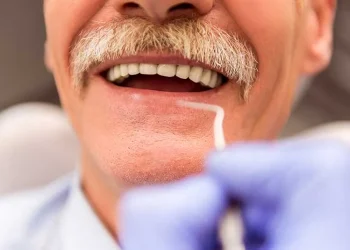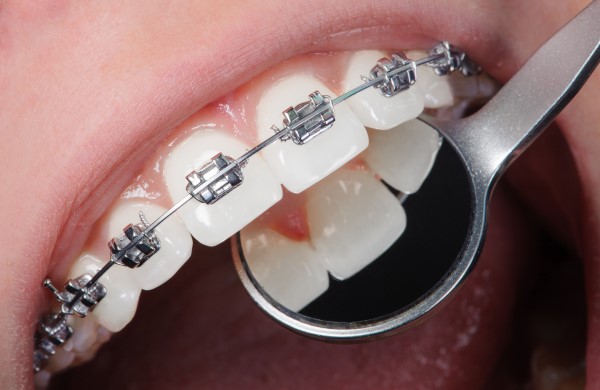Contents
- 1 Do braces make teeth weak?
- 2 What are Weak Teeth?
- 3 Braces and Weak Teeth
- 4 Should Braces be Applied on Weak Teeth?
- 5 Strengthening Weak Teeth
- 6 The Best Orthodontic Options for Weak Teeth
- 7 What Should be Considered During Orthodontic Treatment for Weak Teeth?
- 7.1 Choose a Reputable Dentist, Choose the Right Method of Braces
- 7.2 Thoroughly Treat Oral Diseases Before Braces
- 7.3 Follow Your Doctor’s Instructions on How to Take Care of Your Teeth and Eat While Wearing Braces
- 7.4 Stick to the Correct Orthodontic Schedule and Follow up with the Doctor’s Appointment
- 8 Conclusion
Do braces make teeth weak?
Braces have become a popular solution for correcting dental issues such as crooked teeth, overcrowding, and misaligned bites. However, many people with weak teeth wonder if braces are a viable option for them. In this article, we will explore whether it is possible to have braces on weak teeth.
What are Weak Teeth?
Weak teeth can refer to a variety of dental issues, such as tooth decay, enamel erosion, or a genetic predisposition to weaker tooth structure. Tooth decay is a common dental problem that occurs when bacteria in the mouth produce acid that affects the tooth enamel, which is the hard, outer layer of the tooth. If left untreated, tooth decay can lead to cavities, infections, and other serious dental problems.
Enamel erosion is another dental issue that can cause weak teeth. Enamel is the hard, protective layer that covers the teeth, and it can erode due to factors such as acidic foods and drinks, tooth grinding, and certain medications. When enamel erodes, the teeth become more susceptible to damage, such as chips and cracks, and can also become discolored and sensitive.
In some cases, weak teeth may be due to a genetic predisposition to weaker tooth structure. This means that some individuals may simply have teeth that are more prone to damage and decay, even with good dental hygiene practices. However, there are still ways to prevent and manage weak teeth, such as regular dental checkups, brushing and flossing regularly, and avoiding acidic foods and drinks.

Braces and Weak Teeth
Braces is an orthodontic method that works by using gentle pressure to move the teeth into the new position. This pressure can be problematic for people with weak teeth. Weak teeth can result from a variety of factors, such as tooth decay, trauma, or genetics. If you have weak teeth, the pressure applied by braces could cause further damage, such as cracking or breaking. In such cases, your dentist may recommend alternative treatments that do not apply as much pressure, such as clear aligners or dental bonding.
Should Braces be Applied on Weak Teeth?
Your doctor will determine whether or not to get braces based on the strength of your teeth.
- Mildly weak teeth
In this case, braces can still be fixed after dental treatment (such as treating tooth decay or periodontitis). After treatment, the teeth will become stronger, making it easier to control their movement. Therefore, braces remain highly effective even in such cases.
- Severe tooth decay
If the decay is severe enough to cause pulp damage or severe periodontitis, braces should not be given. Weak teeth will be difficult to control and the braces may be less effective.
There are certain cases where braces should not be used, such as:
- Individuals with systemic diseases
People with diseases such as epilepsy, mental illness, cardiovascular disease, diabetes, and blood cancer are not recommended to get braces. This is because their bodies have poor resistance and a decreased ability to fight infections. Addressing dental problems during this time can create wounds that are difficult to heal and may even cause infection.
- Weak jawbones
If the jawbone is weak and accompanied by weak tooth roots, the patient may be at risk of popping the tooth root out of the gums during braces, leading to the possibility of permanent tooth loss. In this case, it is best to avoid braces altogether or to seek examination and treatment from a qualified doctor to develop a safe and effective braces plan.
Strengthening Weak Teeth
If you have weak teeth but still want braces, your dentist may recommend strengthening your teeth first. This can be achieved through a variety of treatments, such as dental crowns, veneers, or fillings. In some cases, your dentist may also recommend wearing a mouthguard to provide extra protection for your teeth during the braces treatment.
Dental Crowns
A dental crown is a cap that is placed over a damaged tooth to protect it from further damage. The materials used to make crowns are porcelain, ceramic, and metal. Crowns can provide additional strength to weak teeth, as well as improve the appearance of the tooth. Your dentist will evaluate your teeth to determine if a crown is the best option for you.
Veneers
A veneer is a thin shell that is placed over the front of a tooth to improve its appearance. There are porcelain veneers or composite resin veneers. Veneers can also provide additional strength to weak teeth, as well as improve the appearance of the tooth. Your dentist will evaluate your teeth to determine if a veneer is the best option for you.
Fillings
A filling is a material that is used to fill in a cavity in a tooth. That material can be varied, from composite resin to even gold and silver. Fillings can help prevent further decay in a tooth, as well as provide additional strength to weak teeth. Your dentist will evaluate your teeth to determine if a filling is the best option for you.
Mouthguards
A mouthguard is used to protect the teeth from physical damage from teeth grinding or physical activities like sports. Mouthguards are often made of plastic and silicone. Mouthguards can be custom-fitted to your teeth for maximum protection. Your dentist may recommend a mouthguard if you have weak teeth and are participating in activities that could cause damage to your teeth, such as contact sports.
The Best Orthodontic Options for Weak Teeth
If you have weak teeth, there are several orthodontic options available to you. The best option for you will depend on the severity of your dental issue. Here are some of the most effective orthodontic options for weak teeth:
Clear Aligners
Invisalign is the most popular line of clear aligners. They work by using a series of clear plastic trays that gradually move your teeth into the desired position. Clear aligners apply less pressure to your teeth than braces, making them a good option for people with weak teeth.
Lingual Braces
Lingual braces are similar to traditional braces, but they are placed on the back of your teeth, making them less visible. Like clear aligners, lingual braces apply less pressure to your teeth than traditional braces, making them a good option for people with weak teeth.
Dental Bonding
During the process of dental bonding, resin is applied to your teeth. This kind of resin is similar to the teeth in terms of color, so it will significantly improve the teeth’s appearance. It can also be used to fill in gaps between teeth and to repair chips and cracks. Dental bonding is a good option for people with weak teeth because it does not apply any pressure to your teeth.
What Should be Considered During Orthodontic Treatment for Weak Teeth?
Choose a Reputable Dentist, Choose the Right Method of Braces
When it comes to orthodontic treatment, it is essential to choose a reputable dentist. You want to work with a dentist who has experience and expertise in treating patients with weak teeth. Your dentist can evaluate your teeth and recommend the best course of action. They will also recommend the right method of braces that will be best for your teeth. It is essential to choose the right method of braces because some types of braces apply more pressure than others.
Thoroughly Treat Oral Diseases Before Braces
Before getting braces, it is crucial to thoroughly treat any oral diseases you may have. Dental issues such as tooth decay, gum disease, and cavities can weaken your teeth, making it difficult to control their movement during the braces treatment. It is essential to treat these issues before getting braces to ensure that your teeth are strong enough to handle the pressure.
Follow Your Doctor’s Instructions on How to Take Care of Your Teeth and Eat While Wearing Braces
During orthodontic treatment, it is essential to follow your doctor’s instructions on how to take care of your teeth and eat while wearing braces. Your dentist will provide you with a list of foods to avoid and foods that are safe to eat. It is crucial to avoid hard, sticky, or chewy foods that can damage your braces or weaken your teeth. You should also maintain good oral hygiene by brushing and flossing regularly to prevent tooth decay and gum disease.
Stick to the Correct Orthodontic Schedule and Follow up with the Doctor’s Appointment
Orthodontic treatment requires a schedule that must be followed to ensure the best results. You must stick to the correct orthodontic schedule and follow up with your doctor’s appointments. Skipping appointments can delay your treatment and prolong the time you have to wear braces.
Conclusion
Braces can be a fantastic solution for correcting dental issues, but they may not be suitable for everyone. If you have weak teeth, it is crucial to consult with a dentist to determine whether braces are a viable option for you. Your dentist can recommend alternative treatments or suggest strengthening your teeth before getting braces. By working with your dentist, you can achieve a healthy, beautiful smile that you can be proud of.















